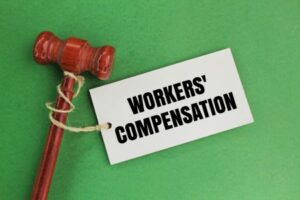Understanding the “Intentional Wrong” Exception in New Jersey

Like many states, New Jersey’s Workers’ Compensation Act includes an exclusive remedy provision, meaning injured employees generally cannot sue their employer in court. In exchange for giving up the right to sue, workers are entitled to automatic benefits when injuries arise out of and during the course of employment.
This is because workers’ compensation is a no-fault form of insurance. What this means for employers and employees is that coverage will come into effect regardless of what individual or entity was at fault for the accident. This is in contrast to other types of personal injury claims, which require proving that one party acted negligently to recover compensation.
However, there is one important exception: intentional wrongs. New Jersey law does allow workers to file a tort claim against an employer if the injury was caused by an intentional wrong. This is a narrow but significant exception to the general rule. Over the years, several New Jersey court cases have clarified what qualifies as an intentional wrong.
Laidlow v. Hariton Machinery Co., 790 A.2d 884 (N.J. 2002)
To prove an intentional wrong under the Act, the injured worker must show:
- The employer knew its conduct was substantially certain to cause injury or death.
- The injury and circumstances were:
a) More than a routine risk of industrial employment, and
b) Clearly beyond what the Workers’ Compensation Act was meant to cover.
The court clarified that the employer doesn’t need to intend to harm the worker. Knowledge of likely harm is enough if that harm was virtually certain.
Rodriguez v. Shelbourne Spring, LLC, Nos. A-39 Sept. Term 2023, 089044 (N.J. Dec. 12, 2024)
The court reiterated that the “substantial certainty” test is a very high bar. To preserve the purpose of the workers’ comp system, courts require proof that injury was virtually guaranteed, not merely possible or likely.
Van Dunk v. Reckson Associates Realty Corp., 45 A.3d 965 (N.J. 2012)
Simply violating OSHA safety rules is not enough to prove an intentional wrong. OSHA violations can be considered as part of the overall evidence, but they don’t automatically establish the “virtual certainty” needed for a tort claim.
To successfully sue an employer under the “intentional wrong” exception in New Jersey, the worker must prove that the employer acted with knowledge that injury was practically inevitable, not just careless or negligent behavior. This is a demanding legal standard, and courts apply it cautiously to maintain the balance set by the workers’ compensation system.
Contact a New Jersey Personal Injury Lawyer Today
Workplace accidents can cause significant injuries. It’s important to understand the rules and exceptions that apply.
A Morristown workers’ compensation attorney from The Law Offices of Michael P. Burakoff can assist you. Our workers’ compensation team has extensive experience helping workers injured on the job secure full and fair compensation for their workplace injuries. We strive to quickly and fairly resolve workers’ compensation claims for our clients throughout New Jersey. Call (973) 455-1567 or fill out the online form to schedule a consultation.
Source:
workerscompensation.com/daily-headlines/intentional-wrongs-in-new-jersey/
